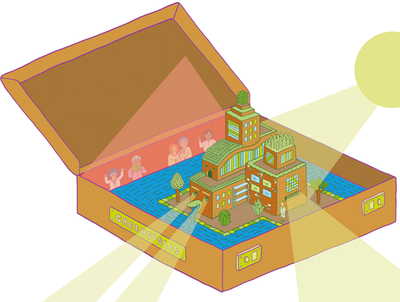Unifying Systems in Catalysis (UniSysCat)
Sustainability needs catalysis research

Project overview
A catalyst accelerates biological and chemical processes, often making them possible in the first place. Catalysts are therefore involved in the manufacture of almost all the products we need in our daily lives.
Nature also knows catalysts: Biological catalysts allow natural processes to take place with maximum efficiency and precision. In contrast, chemical reactions in laboratories and industry are often still energy-intensive, require fossil raw materials and generate large quantities of waste and greenhouse gases - even despite the use of catalysts.
The Cluster of Excellence "Unifying Systems in Catalysis" (UniSysCat) brings together researchers from the fields of chemistry, biology and physics. Their aim is to better understand complex systems of coupled catalytic reactions, such as those found in nature, and then to use these for the sustainable and resource-saving synthesis of valuable materials or for more efficient methods of energy storage.
UniSysCat is a Cluster of Excellence at the Technische Universität Berlin.
Partners are the Humboldt-Universität zu Berlin, the Freie Universität Berlin, the Charité Berlin, the University of Potsdam, the Fritz Haber Institute of the Max Planck Society (FHI), the Max Planck Institute of Colloids and Interfaces (MPIKG), the Helmholtz Center Berlin for Materials and Energy (HZB) and the Leibniz-Forschungsinstitut für Molekulare Pharmakologie (FMP).
Speakers
Prof. Dr. Juri Rappsilber, Speaker (Technische Universität Berlin)
Prof. Dr. Maria Andrea Mroginski, Co-Speaker (Technische Universität Berlin)
Prof. Dr. Arne Thomas, Co-Speaker (Technische Universität Berlin)
Duration
January 2019 to December 2025
Project Page: Link

